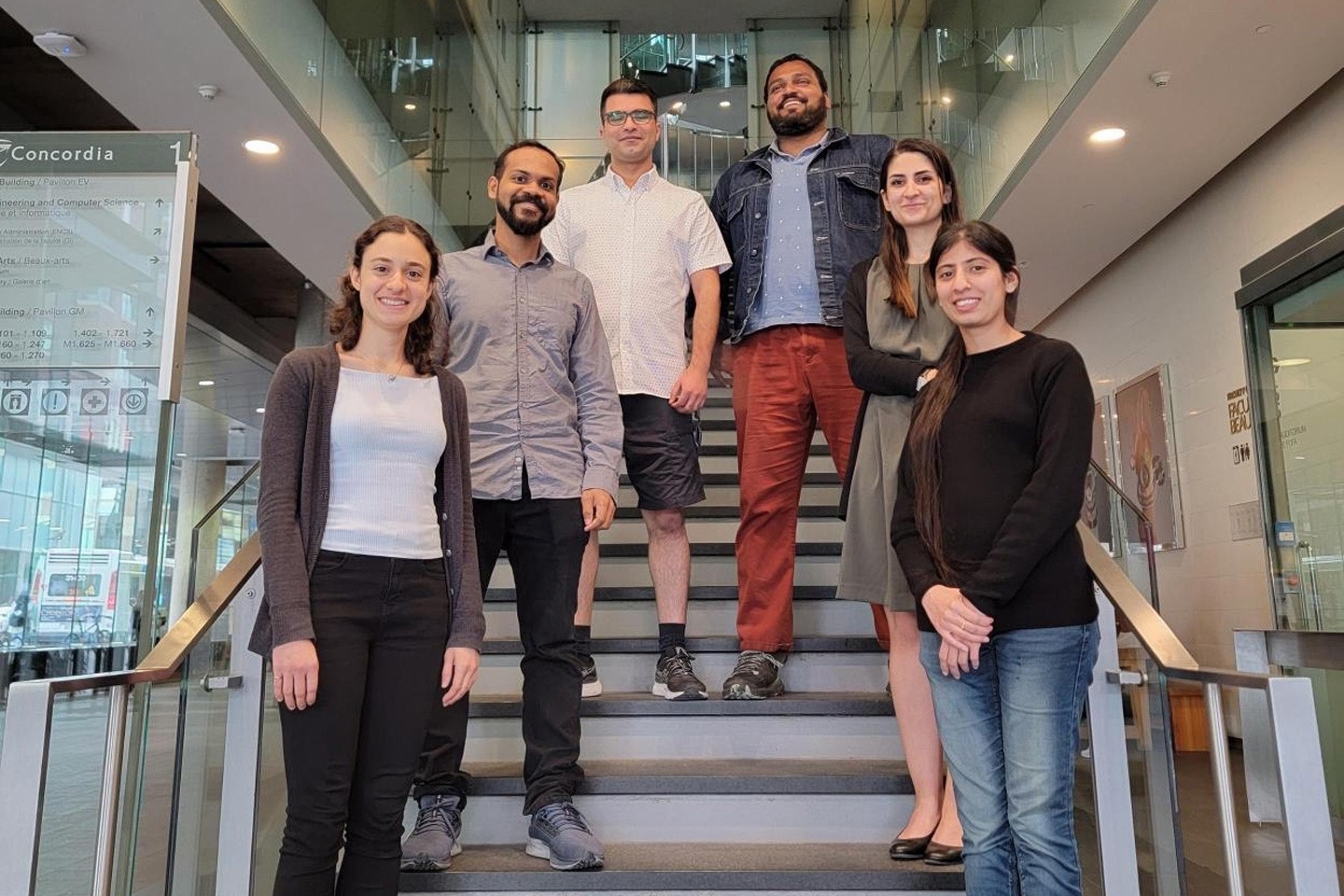NEXT-GEN LEARNING
Inspiring academic and practical know-how
Highlights
Concordians launch Quebec’s first space-bound student-built satellite
A SpaceX Falcon 9 rocket was launched from Cape Canaveral Space Force Station in Florida on a resupply mission to the International Space Station in June. On board was Space Concordia’s Orbital Dust Imaging Nanosat (SC-ODIN), the first space-bound student-built satellite in Quebec.
SC-ODIN was developed in partnership with the Canadian Space Agency (CSA) and Nanoracks — a satellite rideshare service provider. Its primary mission is to gather multispectral images of aerosol particles from dust storms on the Namibian coast to provide data for climate research.
“This is a major accomplishment for our student society,” says Simon Randy, president of Space Concordia. “It positions Concordia at the forefront of space exploration and provides students with invaluable experience and opportunity.”
Space Concordia is also working on a joint project with AstroYeast — a team composed mostly of Concordia students and recent graduates — to develop a microfluidics framework to study the effects of microgravity on nutrient-producing yeast. This is part of CUBICS, a CSA initiative that provides professors in post-secondary institutions with an opportunity to engage their students in an end-to-end space mission.
 Simon Randy, president of Space Concordia: “This is a major accomplishment for our student society.”
Simon Randy, president of Space Concordia: “This is a major accomplishment for our student society.”
Electric Aircraft Technologies Symposium student design challenge winners
A team of Concordia engineering graduate students won the student design challenge at the 2023 American Institute of Aeronautics and Astronautics / Institute of Electrical and Electronics Engineers – Electrified Aircraft Technologies Symposium. The Concordia team looked at how carbon dioxide and noise emissions can be reduced by implementing hybrid-electric propulsion technology on an existing aircraft.
The team proposed an innovative concept where solar panels would be placed on selected parts of the aircraft to supplement the electrical power that is usually drawn from the engines. The forward-looking proposal incorporated projected improvements in solar-panel and battery technologies to target an entry into service by 2035.
 Pictured from left to right : Gala Licheva, Vijesh Mohan, Mohammed Mir, Andrew Jeyaraj, Hast Jahanara and Parush Bamrah.
Pictured from left to right : Gala Licheva, Vijesh Mohan, Mohammed Mir, Andrew Jeyaraj, Hast Jahanara and Parush Bamrah.
Decolonizing and indigenizing the curriculum and pedagogy
Concordia committed to recognize and integrate Indigenous ways of knowing in its curriculum and pedagogy after the release of its Indigenous Directions Action Plan in 2019. The aim was to develop a university-wide plan that seeks to introduce Indigenous perspectives in the curriculum and help train faculty to teach Indigenous subjects and facilitate respectful classroom discussions.
The university moved toward that commitment with the inauguration of a five-year plan to decolonize and indigenize its curriculum and pedagogy. “The plan challenges us — as educators — to go beyond our comfort zones and reconceptualize our curriculum in respectful and meaningful ways,” says Anne Whitelaw, provost and vice-president, academic.
John Molson students engage with local fast-food restaurants
For Xiaodan Pan, associate professor of supply chain and business technology management, the key to learning any software is understanding its real-world application. So she had her students use a simulation software called Arena to improve fast-food restaurants’ efficiency.
Students looked at restaurants that provide services through various channels — in person, by phone, with an app, online and through third-party providers such as Uber Eats or DoorDash — and simulate the multi-channel food service’s operations to see what works best. “The students thoroughly enjoyed this aspect of the simulation project, which further enhanced their engagement and enthusiasm,” Pan says.